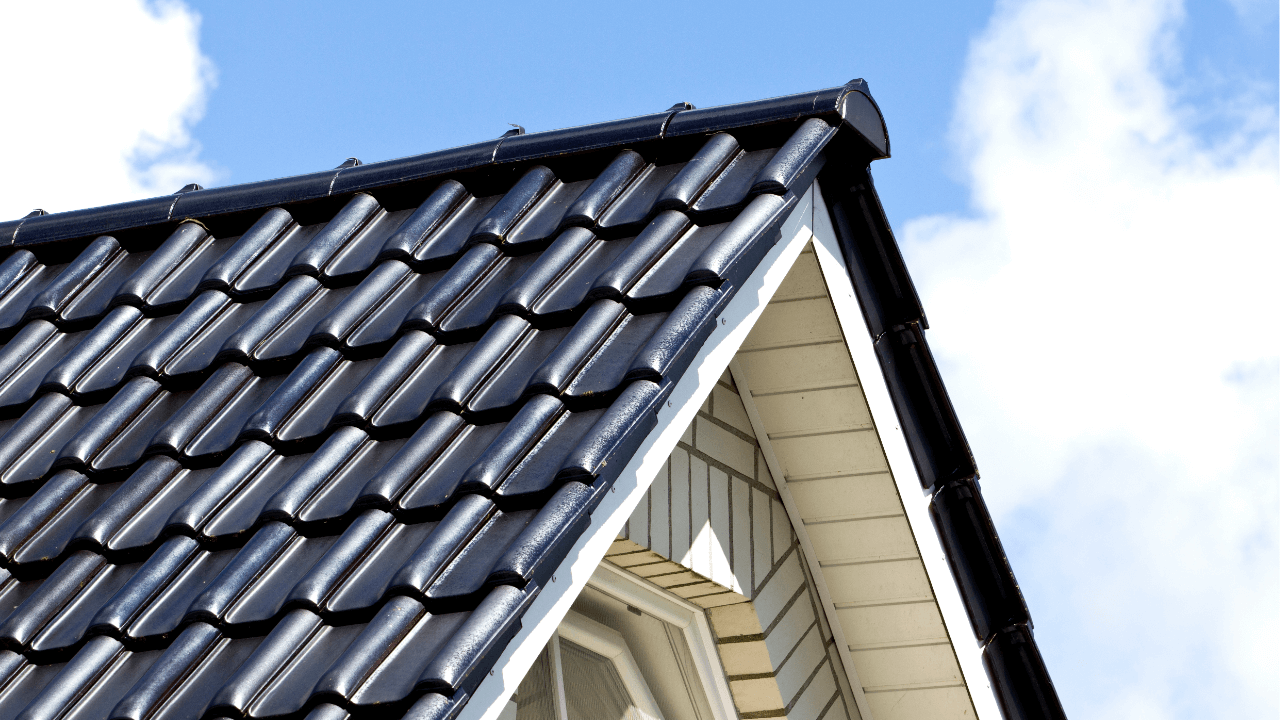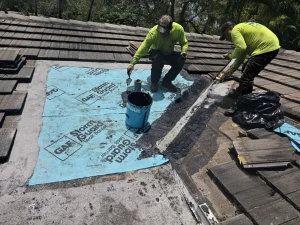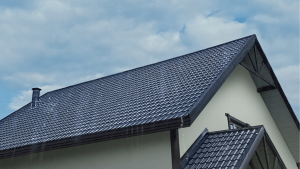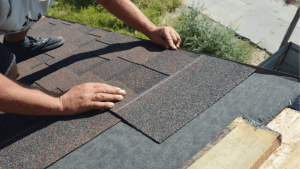
Roof Replacement Tax Credits in 2025: Your Complete Guide to Saving in Miami + IRS Requirements
Discover how to leverage tax credits for your new roof in Miami. Do you qualify for 30% savings? We explain step-by-step. Get your free estimate!
If you live in Miami, your roof is more than just a cover; it could be the key to saving on your 2025 taxes. After years of intense hurricanes and relentless extreme heat, many South Florida homeowners face the urgent need to replace their roofs. The good news is that the government offers tax credits and deductions that can significantly ease the financial burden.
In this guide, we’ll explore how a new roof not only protects your home but can also translate into substantial tax benefits, from solar tax credits to natural disaster deductions. As Miami roofing experts, at Roofing Nation, we know every dollar counts, and we’ll help you understand how to maximize your savings.

In this article, we’ll see:
The most common question we hear is: «Can I deduct the cost of a new roof?» The answer, like many things related to taxes, is: it depends.
Generally, the cost of a new roof for your primary residence is not directly deductible as an expense, as it’s considered a capital improvement that increases the property’s value. However, there are crucial exceptions that can generate substantial savings.
The situation changes drastically for rental or commercial properties. In these cases, the cost of a new roof can be depreciated over several years, allowing you to deduct a portion of the cost each year.
Miami Focus: South Florida is a high-risk hurricane zone. According to FEMA data, hurricane damage in Florida has amounted to billions of dollars over the last decade, with a significant impact on residential roofs. If your roof was damaged by a natural disaster, you may qualify for deductions, as we’ll explain later.

This is where homeowners can see the biggest benefits. The federal government incentivizes investments in home improvements that increase energy efficiency. If you install a roof that meets certain criteria, you could be eligible for significant tax credits.
The federal credit for residential energy-efficient property, often referred to as the Residential Energy Property Credit, allows you to claim a percentage of the cost of qualifying materials.
Local in Miami: At Roofing Nation, we are certified Energy Star installers and specialists in installing solar roofs and other high-efficiency energy materials. We help you select the right materials and obtain the necessary documentation to claim these valuable tax credits for your roof in Miami in 2025.
If your roof sustained damage due to a hurricane or other natural disaster, you may be able to claim losses as deductions on your federal taxes. This only applies if the area where you live was declared a «federal disaster zone» by the president.
Example: If your roof was damaged by Hurricane Ian in 2022 and you live in a county like Miami-Dade or Broward, which were declared federal disaster zones, you could be eligible to claim a disaster loss.
Documents needed to claim disaster losses:
Claiming these tax benefits may seem complex, but following these steps will simplify the process:
Consult with a Florida-specialized accountant: Tax laws can be complex, especially when it comes to credits and deductions. A tax professional with experience in Florida laws and federal credits can ensure you take advantage of all the benefits you’re entitled to and that your application meets all IRS requirements.
To further clarify common concerns about roof replacement tax credits and deductions, here are some frequently asked questions:
How much can I save with a solar roof in Miami?
You can save up to 30% of the total cost with the Federal Solar Tax Credit (ITC), plus significant savings on your electricity bill every month. At Roofing Nation, we offer free evaluations to help you calculate your exact benefit and energy savings potential.
What roofs qualify for hurricane credits?
Only roof damages located in areas that have been officially declared as ‘federal disaster areas’ by the President are eligible for disaster deductions. For example, if your roof was damaged in Miami-Dade or Broward counties during a federally declared disaster event in 2022, you might qualify.
Are roof repairs deductible?
Generally, repairs to your primary residence are not deductible. However, they can be if the property is a rental, if you use a portion of your home for business purposes (like a home office), or if the repairs are the result of a natural disaster in a federally declared zone.
Are there additional tax benefits for roofs in Florida?
Yes, Florida offers sales tax exemptions on certain energy-efficient materials and appliances. It’s advisable to check the official Florida Department of Revenue website or speak with a professional to see current exemptions that apply to roofing materials.
How do I know if my roof is Energy Star compliant?
For a roof to qualify for energy efficiency credits, the materials must meet strict Energy Star standards. A certified and experienced contractor, like Roofing Nation, can advise you on products that meet these requirements and provide you with the necessary certificates for your tax filing.
According to NOAA, the 2025 hurricane season is projected to be one of the most active on record, underscoring the importance of having a robust and efficient roof in Miami. A new roof is not just an investment in your property’s safety and value, but as we’ve seen, it can also be a surprising source of tax savings.
Ready to maximize your savings in 2025? At Roofing Nation, we help you choose a roof that not only qualifies for tax credits but is also hurricane-resistant and capable of withstanding the relentless Florida sun. We want your investment to be as cost-effective as possible.
Contact us today for a free inspection and detailed estimate! Call us at Roofing Nation or complete our online form to get started. Your roof is your greatest protection; make it worth every dollar spent and every tax saving you can get.

Discover how to leverage tax credits for your new roof in Miami. Do you qualify for 30% savings? We explain step-by-step. Get your free estimate!

In this 2025 guide, we’ll analyze the three main types of underlayment (asphaltic, synthetic, and self-adhering), their advantages in tropical climates, and the red flags every homeowner should know before hiring a roofing service.

Based on hundreds of projects, we answer the 5 most frequent inquiries we receive, with details on installation times, rain policies, flexible payment options, and warranty coverages according to the 2025 code.

This article details the certified process used by experts, from deck preparation to premium materials like Asoflex SBS and Poly IRX, specifically designed for our tropical climate.

Below, we’ll uncover the three biggest mistakes homeowners make when attempting to repair their roofs on their own in Miami and explain why current regulations favor, and even require in many cases, the expertise and certification of professionals.

This article’s main objective is to break down the underlying causes of these rising roofing prices in Miami and, more importantly, to offer practical and effective strategies for homeowners to plan for and address roofing costs in 2025.
® All rights reserved,
Roofing Nation LLC.
10830 NW 138th St #1, Hialeah
Gardens, FL 33018
(Monday – Sunday)
© Copyright Roofing Nation. All Rights Reserved 2025